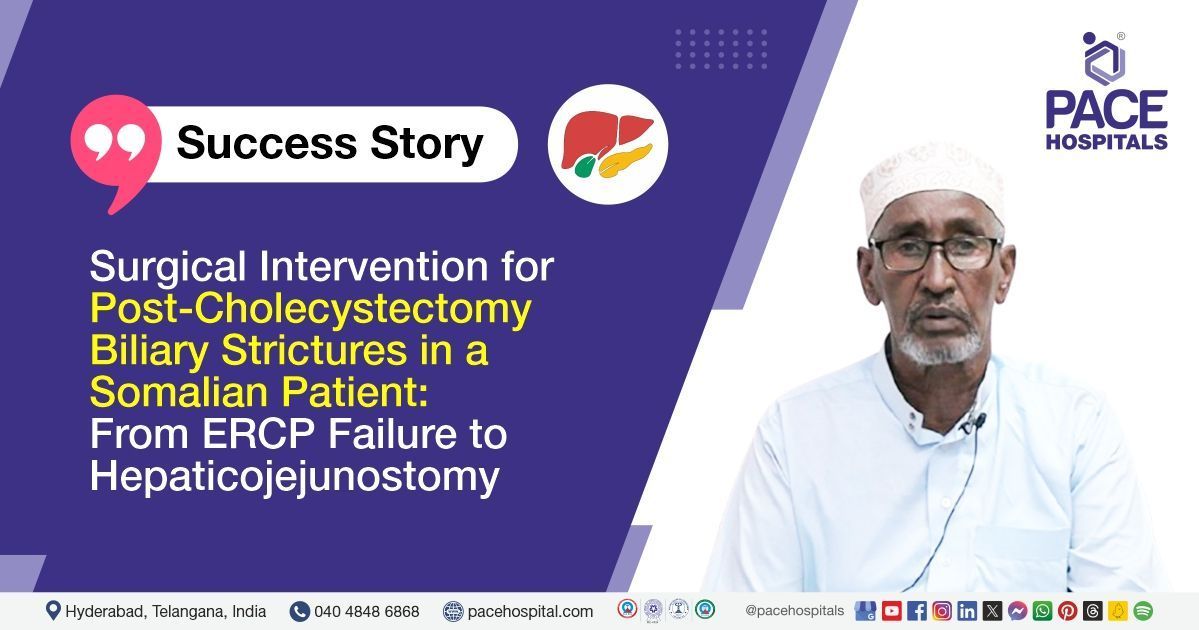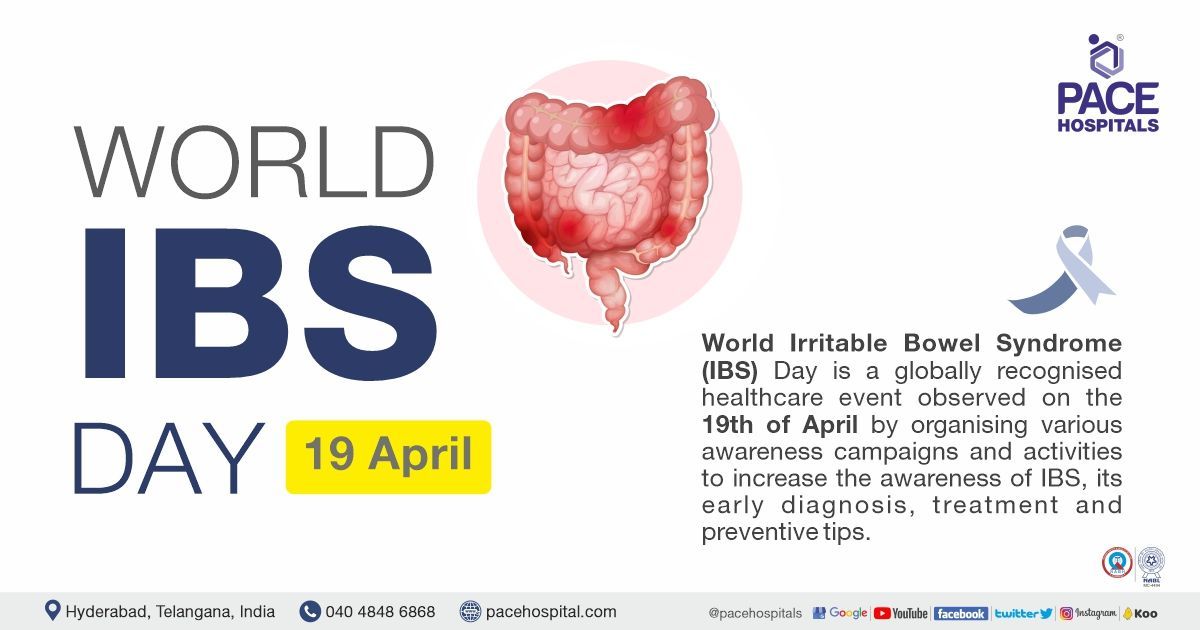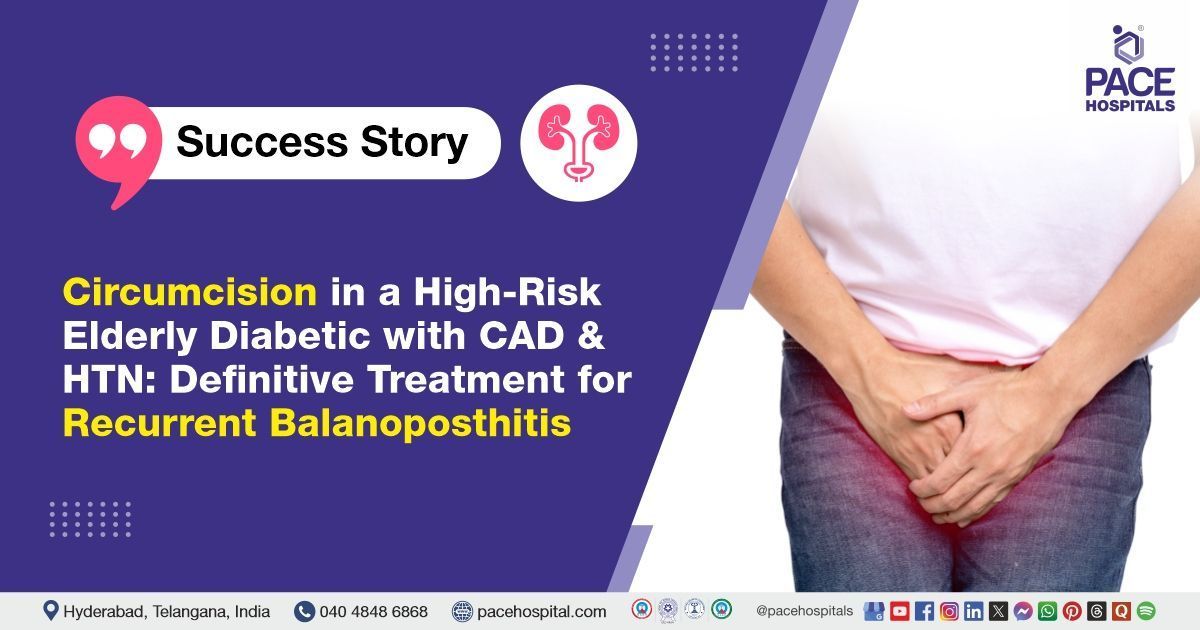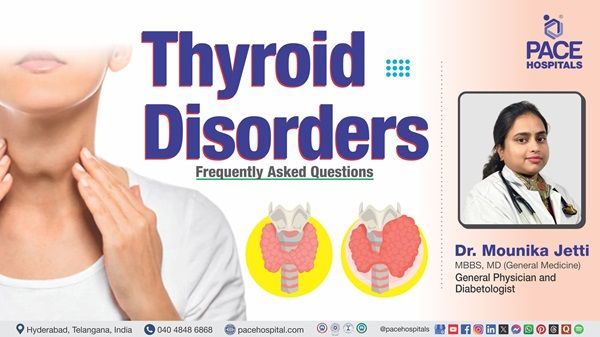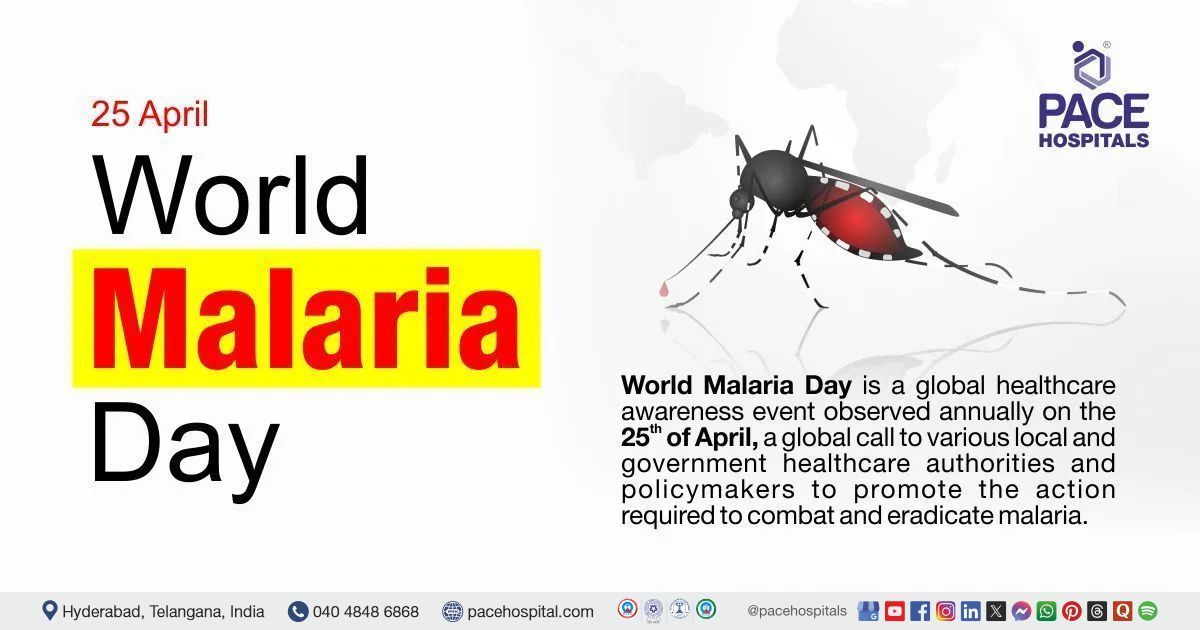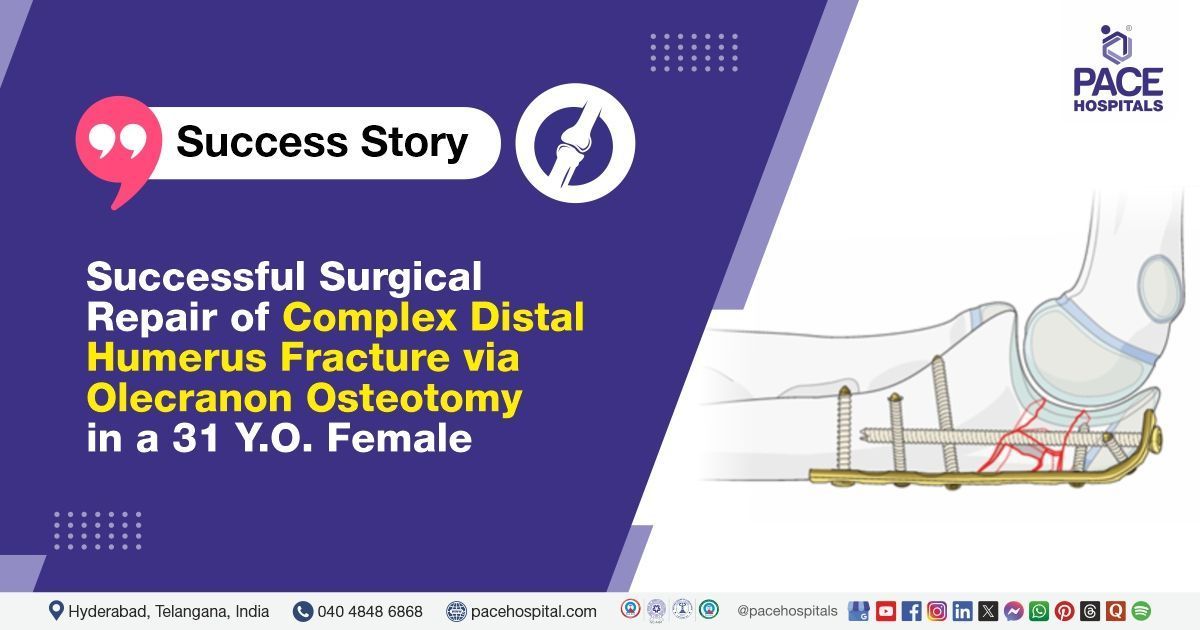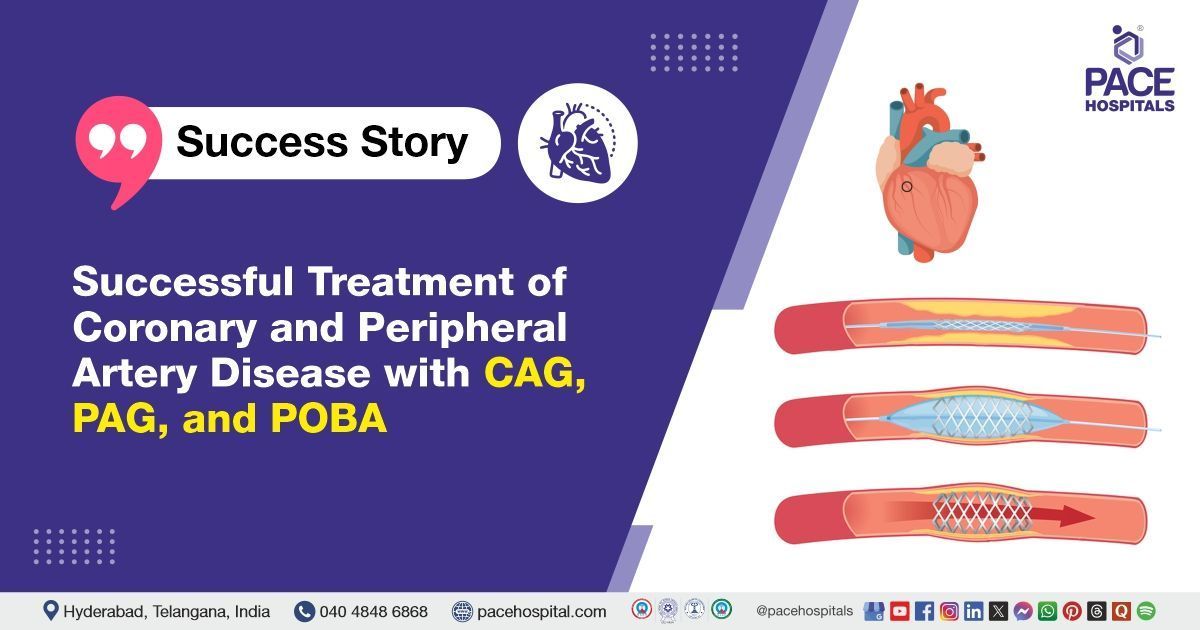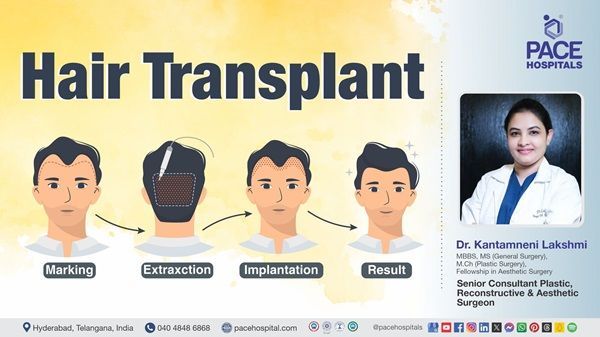Hepaticojejunostomy for Post-Cholecystectomy Biliary Stricture: Overcoming ERCP Failure in a Somalian Patient
A 71-year-old male patient from Somalia was referred to PACE Hospitals, Hyderabad for advanced treatment for benign biliary stricture - type II. The Surgical Gastroenterology expert team performed ROUX - EN-Y Hepaticojejunostomy procedure.
Medical History & Diagnosis
An elderly male patient aged 71 years has approached Surgical Gastroenterology Department of PACE Hospitals, Hyderabad for advanced treatment of biliary strictures. The patient previously underwent lap cholecystectomy for cholelithiasis (Gallstones) and acute cholecystitis (Inflammation and infection of the gallbladder). Post surgery, the patient developed jaundice for which he underwent a magnetic resonance cholangiopancreatography (MRCP) scan. The scan revealed type 2 Benign Biliary Strictures (BBS).
A type 2 benign biliary stricture (BBS) is a narrowing of the bile duct that occurs in the upper common hepatic duct, within 2 centimeters of the hepatic bifurcation. This type 2 Benign Biliary Strictures can be caused by a liver transplant or a cholecystectomy. In this case, the patient had acute cholecystectomy (Removal of Gallbladder) for cholelithiasis.
To clear the blockages in the bile duct, the doctors tried to perform Endoscopic retrograde cholangiopancreatography (ERCP) stenting, but it was unsuccessful. Upon failure of ERCP procedure, the doctors tried to perform Percutaneous transhepatic biliary drainage (PTBD). This procedure too was unsuccessful.
Upon consecutive failures of surgical treatment approaches, he was referred to
PACE Hospitals, Hyderabad, for advanced treatment and medical management.
Medical Decision Making (MDM)
Considering the previous failure of treatment approaches and complexity of the medical condition, he was admitted to Surgical Gastroenterology Department of PACE Hospitals, Hyderabad for further treatment of benign biliary stricture. Upon detailed examination, Surgical Gastroenterologist, Bariatric and Metabolic Surgeon, GI and HPB Oncologist, Liver Transplant Surgeon
Dr. Suresh Kumar S, have affirmed to perform ROUX-EN-Y hepaticojejunostomy.
Treatment Plan
A Roux-en-Y hepaticojejunostomy (RYHJ) is a surgical procedure that treats blockages, injuries, or narrowing in the biliary system. The biliary system includes the gallbladder, liver, and bile ducts. During the procedure, a surgeon creates a new path for bile to flow to the small intestine and connects the hepatic duct, which is the end of the bile duct from the liver to the jejunum, which is the middle part of the small intestine.
Surgical Findings
The patient with the above medical history and diagnosis was prepared for performing hepaticojejunostomy. He got explained in detail about the surgical procedure and sent for Pre anaesthetic checkup (PAC) after obtaining patient’s consent. The Roux-En-Y procedure was performed successfully without any complications.
Intraoperative findings
There were adhesions of omentum and duodenum found attached to the gallbladder, adhesiolysis was done to separate them. Two clips from previous surgical approaches were observed on bile duct below the confluence and were removed gently. Bile duct confluence was identified and left hepatic duct was found anteriorly opened with pus discharge. An IFT Catheter was placed through previously tried PTBD site and brought through confluence.
Post-surgical care
The patient underwent a Roux-En-Y Hepaticojejunostomy successfully, without any medical complications. He was shifted to General observation room from Intensive care post-surgery. During his hospitalization, he was managed further with IV fluids, antibiotics, antacids, motility agents, and other supporting medications.
Counseling and follow-up
Prior to his discharge, he was properly counseled about his medical condition, medication instructions and precautions to be taken. He was advised to get review done after five days in Outpatient Department (OPD) with Dr. Suresh Kumar. However, he was informed to seek
Emergency care at PACE Hospitals, Hyderabad, anytime in case of any adverse symptoms like fever, abdominal pain, or vomiting.
Discharge notes
Antibiotics, Proton pump inhibitors, Opioid analgesics, and steroids for pain management were prescribed to the patient as discharge medications. The patient was discharged in a hemodynamically stable condition.
Reasons behind unsuccessful attempts of ERCP and PTBD in patient with Biliary stricture
Endoscopic retrograde cholangiopancreatography (ERCP) and percutaneous transhepatic biliary drainage (PTBD) can fail for a number of reasons, including:
Endoscopic retrograde cholangiopancreatography (ERCP): ERCP can fail when the endoscope can't reach the targeted site. This can be due to:
- Tumors blocking the passageways
- Altered anatomy from previous surgery
- Duodenal stenosis, a rare birth defect that narrows the small intestine
- An intestinal pocket
- The length, location, or angulation of the stricture
Percutaneous transhepatic biliary drainage (PTBD): PTBD can be technically challenging after ERCP because of pneumobilia and less biliary dilatation.
Other complications due to ERCP and PTBD: Complications associated with PTBD and ERCP include:
- Bleeding
- Perforation
- Cholangitis
- Biliary tract infection
- Bile leakage
- Duct obstruction
Share on
Request an appointment
Fill in the appointment form or call us instantly to book a confirmed appointment with our super specialist at 04048486868

